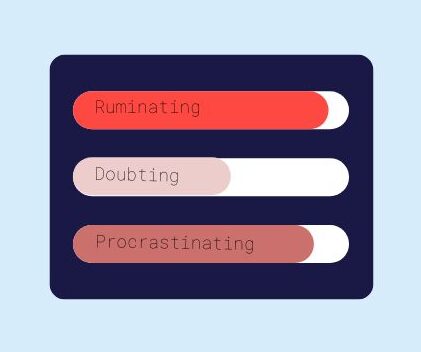According to the Anxiety Disorders Association of America (ADAA) approximately about 15 millions of adults in the United States have social anxiety, and 36% of them report symptoms for 10 years or longer.
More often than not social anxiety is underdiagnosed and therefore, it continues to be a very debilitating struggle.
If this something you are concerned about, either for yourself or someone you care about, read the next paragraphs, see if some of those descriptions relate to your experience, and learn briefly about effective treatments.
When thinking about your social life:
- Do you feel extremely uncomfortable in social situations to the point that you avoid them?
(Avoidant behaviors include for example turning down an invitation, never talking in class, leaving early from social gatherings in order to avoid making small talk, etc.). - Do you only attend social gatherings if you find ways to be safe?
(Safety behaviors include for instance carrying a cell phone to distract yourself from interacting with people, taking your anxiolytic medication just in case, wearing a turtleneck sweater so people don’t see your blushing, etc). - Are you concerned about being negatively criticized, doing something embarrassing, or making a fool of yourself when interacting with others?
- Do you closely inspect your behavior when interacting with others to the degree that at times it’s really hard to pay attention to the person in front of you because you’re busy planning what you’re going to say and how you’re going to say it?
- Do you experience some physical sensations, including panic attacks, when interacting with others?
(This is different from panic disorder). - Do you think over and over about a social event weeks before it happens?
(This is called anticipatory anxiety). - Have you been experiencing the above characteristics to a degree that they significantly affect your relationships, career, and professional performance?
Your responses to the above questions may or may not suggest you’re struggling with social phobia; just be honest with yourself.
In addition, it’s possible that these ongoing struggles may have led you to developed a “story” about being defective or unworthy.
Is this something you relate to as well? (Click here to read previous post on schemas).
Ultimately, the main consequence of social phobia/anxiety is very clear: loneliness. It’s that “loneliness” that I very often witness in my clinical work when working with clients who struggle with this form of anxiety.
And, that’s the main reason to write this post: I fundamentally believe that you can learn a different behavioral response to your anxiety.
Cognitive Behavioral Therapy (CBT) has proven to be the most effective treatment not only for social phobia but anxiety in general.
Within CBT there are also other therapy modalities such as Acceptance and Commitment Therapy (ACT).
Both therapy modalities share some common ground: exposure work and behavioral change.
Therefore, it’s extremely important for you to be aware that an effective therapy treatment is gently going to prepare and invite you to face those fearful social situations and other situations that are consistent with your interpersonal values.
Finally, keep in mind that a therapy that doesn’t embrace change in your daily life is simply not going to be effective with the ongoing sense of “loneliness” you have been struggling with because of social phobia/anxiety.
Take the Social Anxiety Self-Assessment
Search info in our knowledge hub

Learn more

Learn more

Learn more

Learn more

Learn more


